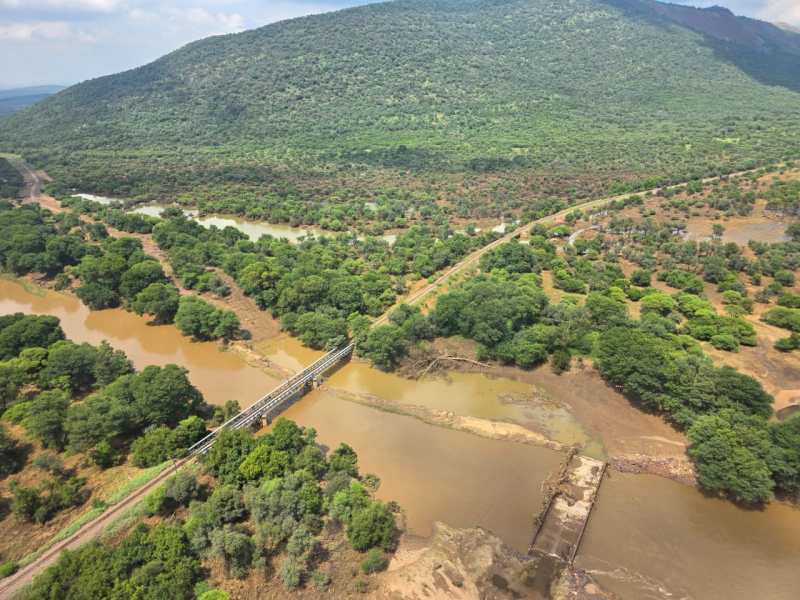South Africa needs to find ways of mitigating climate change. It is unavoidable and needs proactive measures to deal with its impact, said agriculture minister John Steenhuisen during his recent visit to Thabazimbi in Limpopo where heavy rains caused major damage to farms and infrastructure.
Steenhuisen said nearly all the rainfall expected for the entire year in Thabazimbi fell within just a few hours, leading to severe river flooding. “It has caused extensive damage to very valuable farmland at the worst possible time just as farmers were about to harvest.
“The crops they have tended over the last few months, the floods just washed them away. The key priorities are to get electricity back, to get the roads back on track so that the farmers can get their produce to mills and markets as soon as possible,” he said.
Dealing with destruction
He added that in the long term the government needs to look at increasing the level of dam walls and improving infrastructure to better manage the changing rainy patterns.
“It has been heartsore seeing the incredible work of farmers being completely destroyed, however, it has been inspiring to see how farmers and farmworkers have been taking this. There are jobs on the line for both permanent and seasonal workers because there will be no harvest which will lead to no work.
Related stories
“The sooner we can get a state of disaster declared, the better it is going to be for farmers and farming community around here. We cannot simply turn a blind eye to what has happened here – it is devastating,” Steenhuisen said.
Livestock farmer based in Thabazimbi, Steve Sikwane, said the recent rains have been a challenge for most of the farmers and some could not move an inch from their farms or homes.

“At times we were getting calls from farmers who could not reach their farms for about three days, others had to use helicopters to assess the damage as it was risky to even drive. From our side, we have not had any loss of livestock; the only thing that was damaged was our two kraals. We are still waiting for the land to become dry to redo them.
“What we will be doing now is investing in getting the livestock vaccinated because we know after these heavy rains there to be outbreaks which might work against us. On the better side, our water tanks are full so we should have water for a couple of weeks knowing that after rain it becomes extremely hot,” he said.
Sikwane called on the government to work hard to ensure that farmers and communities are protected against floods and that immediate help is provided when such incidents happen.
Meanwhile, as mop-up operations continue in KwaZulu-Natal, the severe weather caused significant disruptions in Durban with damage to roads, infrastructure and houses while some people have lost their lives.
According to the South African Weather Service, isolated to scattered showers and thundershowers are expected over KwaZulu-Natal, Limpopo, and the Eastern Cape on Wednesday and Thursday.
READ NEXT: Government backs poultry industry with R2b investment
![]() BOOK NOW! Secure your ticket to the 2025 Mzansi Young Farmers Indaba, Africa’s premier event for young farmers and agripreneurs.
BOOK NOW! Secure your ticket to the 2025 Mzansi Young Farmers Indaba, Africa’s premier event for young farmers and agripreneurs.
Tiisetso Manoko
www.foodformzansi.co.za
